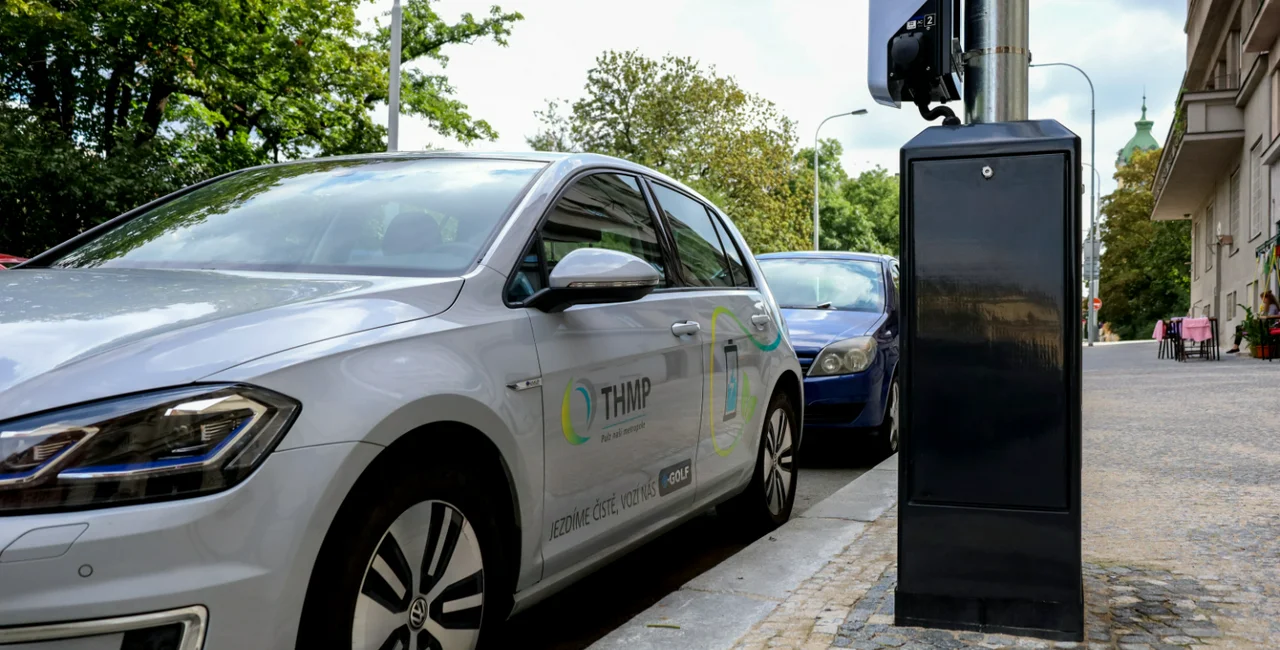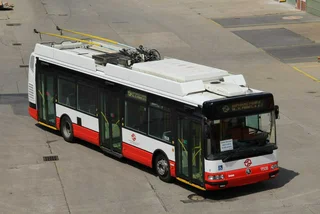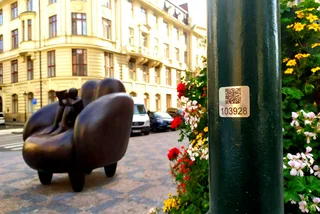People in Prague will be able to recharge electric cars from public light poles. Within two years, hundreds of specially equipped public lighting poles will be installed.
The municipal company Technologie hlavního města Prahy (THMP) will build on last year’s pilot project implemented in cooperation with electric company PREdistribuce in Vinohrady, where 13 electric vehicle (EV) ready lamps were installed.
More than 400 should be added in 12 selected locations within two years. At the end of the joint project, there could be up to several thousand EV-ready lamps.
“E-mobility is coming to Prague. So far, slowly, unobtrusively, but quite certainly. According to estimates, we know that in 2030 there should be about 500,000 to 700,000 electric cars in the country. It can be assumed that at least a fifth of them will travel in Prague,” City Councilor Jan Chabr said.
Creating the network is a long-term project. For electric vehicles to become practical in Prague in the coming years, charging must first be in place.
“The construction of a sufficient network of charging points will not be a matter of a year or two. Last year we started building the charging infrastructure, and we are using the potential of public lighting,” he added.
According to the project approved by Prague City Hall, over the course of six years, the city should create 3,000 to 6,000 charging points for electric cars in public lighting in the capital.
“In the next two years, we will continue their construction, especially in areas outside the wider center of Prague. We coordinate the selection of locations with other municipal entities, whether it is the [municipal technology company] Operátora ICT or the Prague Institute of Planning and Development or the Technical Roadway Administration (TSK),” Tomáš Jílek, chairman of the board of directors of THMP, said.
“It is important for us that charging points are created where it makes sense in all respects,” Jílek added.
Installation of lamps with charging stations will begin in the Prague neighborhoods of Kamýk, Chodovec, Háje, Veleslavín, Velká Ohrad, Vokovice, Prosek, Spořilov, Dvorce, Bohnice and on the border of Vinohrady and Žižkov. The next stage will include locations in Kobylisy and Černý Most, and others will follow.
The costs should reach about CZK 880 million. “This amount includes not only the costs of purchasing chargers, but also the complete modernization of the public lighting in question, the replacement of the cable network or, for example, the renewal of roads,” Jílek said.
“We will install modern LED lights on new poles, which have lower consumption and can dynamically control the intensity of lighting, depending on external conditions,” he added.
According to Chabr, the partnership with PREdistribuce brings the city cost savings of up to CZK 500 million.
“Apart from the extensive modernization of Prague's public lighting, the project also has an important environmental dimension. Thanks to the expanded possibilities of electric charging, Prague will become a cleaner and more modern city. In principle, this is a further fulfillment of the capital’s climate commitment, which leads to more environmentally friendly Prague transport,” Chabr said.
This is not the only effort on the part of the city to reduce reliance on fossil fuels. Recently the city has been purchasing electric buses and trolley buses, and has been also testing hybrid buses on certain routes. The city has a goal of electric buses making up one-third of the fleet by 2030.
The city in 2018 also adopted a strategy to respond to climate change. Its objectives include reducing the negative impact of extreme temperatures; reducing the impact of torrential rains, floods, and long-term droughts; reducing energy use; supporting the adaptation of buildings with insulation and solar power; and improving the city’s emergency response and crisis management.
There is also a Smart Prague project that seeks to use modern technology to create energy efficiency and better living conditions in the city. It overlaps with the city’s environmental strategy.












 Reading time: 3 minutes
Reading time: 3 minutes 



 English
(Proficient)
English
(Proficient)

















